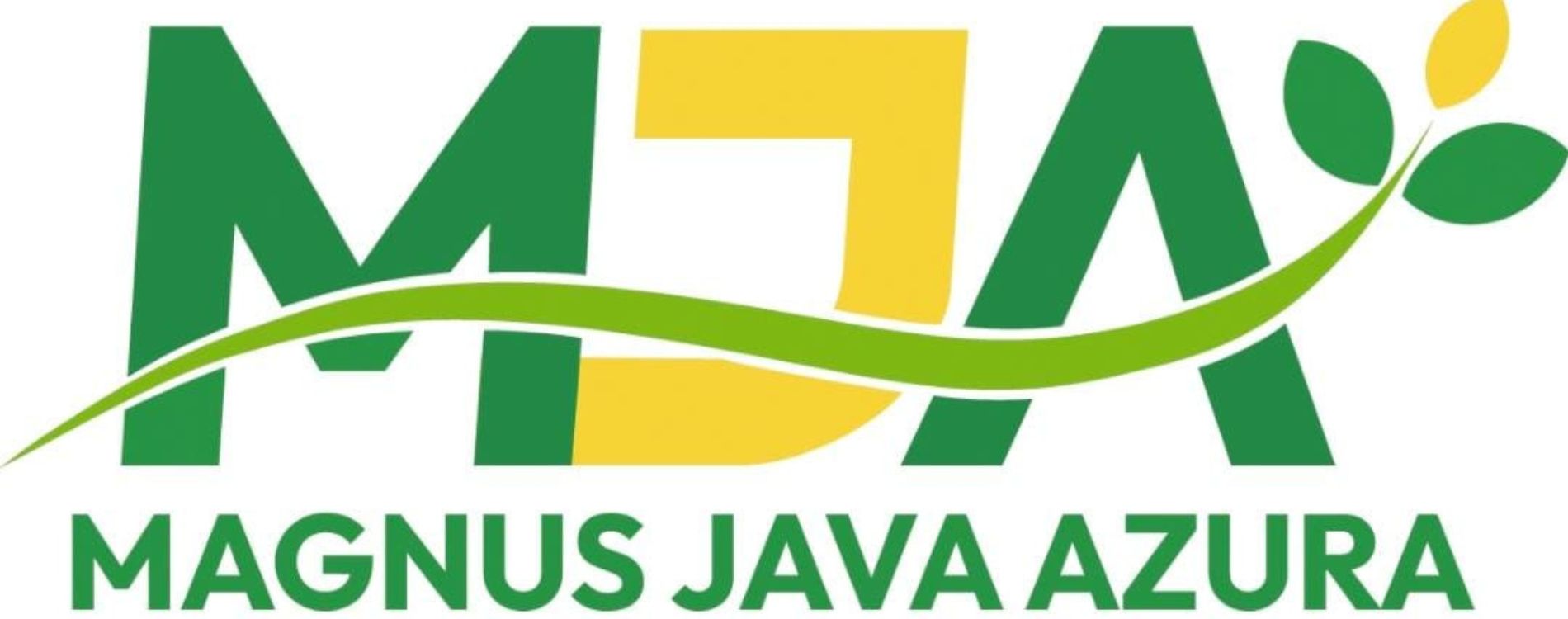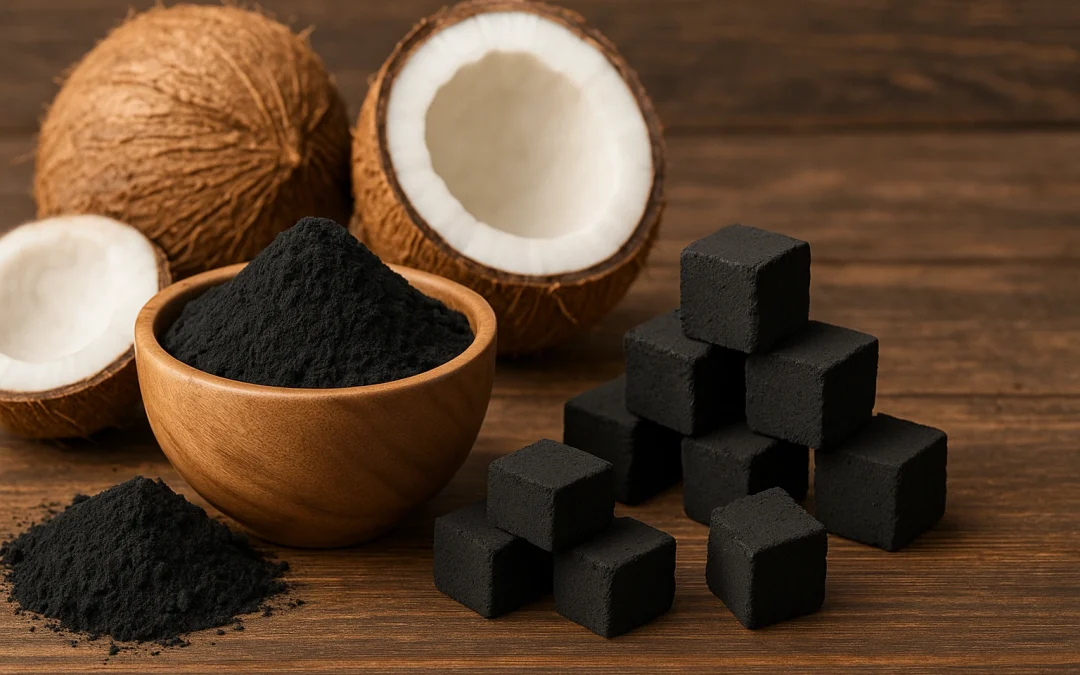Coconut Charcoal – When you’re sourcing fuel or agricultural media that’s genuinely high quality, the origin, production method, and supply reliability matter a great deal. Indonesia has become a global hub for premium coconut charcoal, and for good reason. With abundant coconut resources, advanced processing capabilities, and a growing export infrastructure, the country delivers suppliers who meet international standards. At Magnus Java, we combine those strengths with consistency, modern production, and client‑centric service—so you get high quality supply, not just promise. Whether you’re using charcoal for shisha, barbecue or industrial heat, or you’re exploring cocopeat or cocofiber, knowing the facts helps you choose wisely.
Contents
- 9 Coconut Charcoal Indonesia High Quality Supply Facts
- 1. Abundant Raw Material Base
- 2. Controlled Processing & Carbonization
- 3. Low Ash Content Enhances Efficiency
- 4. Long Burning, High Energy Output
- 5. Sustainability & Eco‑Credibility
- 6. Versatility for Multiple Applications
- 7. Export‑Ready Packaging & Shipping
- 8. Related Products: Cocopeat & Cocofiber
- 9. Quality Control & Certification Standards
9 Coconut Charcoal Indonesia High Quality Supply Facts
1. Abundant Raw Material Base
Indonesia’s coconut plantations cover millions of hectares and generate large volumes of shells which would otherwise be waste. Turning those shells into coconut charcoal leverages a renewable resource and supports circular economy principles. Because the raw material supply is consistently large, suppliers can plan for sustained production and export. For buyers this means fewer supply disruptions, better pricing stability and more predictable inventory. That raw‑material advantage underpins high‑quality supply from Indonesia.
On the production side, when you’re sourcing coconut charcoal, you benefit from older coconut trees, mature shells, and traditional processing merged with modern equipment. Mature shells carbonize into dense briquettes that burn longer, produce less ash and maintain better structural integrity. In short, high‑quality supply starts at the farm and ends at the kiln—and in Indonesia that full chain is well‑established.
2. Controlled Processing & Carbonization
Many inferior charcoals burn out quickly or leave high ash residue because processing was uncontrolled. With premium Indonesian coconut charcoal, carbonization happens at specific temperatures, moisture is reduced, and briquettes are produced with consistent density. That means you receive fuel that is uniform in performance. At Magnus Java we monitor moisture, fixed carbon, ash content and other metrics so your supply meets export standards. For buyers serious about quality, processing control is as important as raw material supply.
Because charcoal is used for sensitive applications—shisha lounges, BBQ events, industrial heating—any variation in quality can affect results. Reliable coconut charcoal supply means fewer complaints, fewer session interruptions, and less risk of failing regulatory or hygienic requirements. When you work with a supplier who tracks processing metrics, you gain confidence.
3. Low Ash Content Enhances Efficiency
Ash content is a key metric when evaluating charcoal. High ash reduces airflow, impedes heat transfer and creates mess. Premium coconut charcoal from Indonesia often delivers ash levels below 4%. For example, some export‑grade briquettes maintain ash at 3‑4% or less, which significantly improves cooking or smoking sessions. This low residue means less cleaning, smoother operation and better user experience.
For distributors or brands, low ash translates into easier marketing, fewer product returns and better customer satisfaction. When you tout a coconut charcoal product as “high quality supply”, metrics like ash content become tangible proof for clients. Consistently delivering that proves reliability, which builds trust and leads to repeat orders.
4. Long Burning, High Energy Output
Another critical fact is burn time and energy output. Premium coconut charcoal offers longer burns thanks to higher fixed carbon and lower volatile matter. That means you load your grill or bowl once, enjoy longer sessions and spend less time replacing fuel. For commercial settings, long burn reduces labor and fuel costs. For home users, it means more enjoyment and less hassle.
High energy also means hotter embers and better cooking or smoking outcomes. Whether you’re searing a steak or running a lounge service, you receive steady heat and consistent output. When your supply chain delivers coconut charcoal that lives up to this promise, your operations become smoother and your brand gains value.
5. Sustainability & Eco‑Credibility
Markets today care about sustainability—how products are made, whether they come from deforested wood, and the overall environmental footprint. Indonesian coconut charcoal has an edge because it uses coconut shells—by‑products of the coconut industry—rather than cutting trees. This contribution to circular use supports green credentials. When you source from a supplier who emphasises environmental responsibility, you enhance your brand’s story and meet rising regulatory or consumer expectations.
Sourcing sustainable charcoal also opens new markets and appeals to eco‑conscious consumers or businesses. With coconut charcoal, you align your supply with global environmental goals, reduce waste and contribute to sustainable livelihood chains. That’s not just a supplier advantage—it’s a value‑added proposition for your business.
6. Versatility for Multiple Applications
While charcoals are often thought only for grilling or shisha, premium Indonesian coconut charcoal supply supports many uses: BBQ, hookah/shisha, industrial heating, metallurgy, activated carbon feedstock. This versatility makes your procurement easier because one raw‑material chain serves multiple needs. From a supply standpoint, that reduces complexity and increases scale efficiencies.
For you as a buyer this means you can standardise part of your supply chain on coconut charcoal, leverage multiple channels and reduce risk. Whether you’re a BBQ brand or a hookah lounge chain, you’ll appreciate a fuel product that adapts, performs well and offers consistency across use‑cases.
7. Export‑Ready Packaging & Shipping
High quality supply isn’t just about the product—it’s also about logistics, packaging, documentation and delivery. Indonesian export‑grade coconut charcoal providers offer sealed bags, humidity‑resistant liners, correct carton labeling, and full export documentation (certificates of origin, test reports, customs compliance). This means when your cargo arrives overseas, it clears smoothly and performs as expected.
For businesses dealing with overseas buyers, that reliability is crucial. Delays, customs issues or damaged shipments undermine your credibility. When you source from a supplier committed to end‑to‑end quality—on product and logistics—you gain a competitive advantage, especially in global markets.
8. Related Products: Cocopeat & Cocofiber
Beyond charcoal, Indonesian supply chains for coconut derivatives include cocopeat and cocofiber, which enhance the value you derive from the coconut resource. Cocopeat is an organic growing medium with high water absorption, capable of replacing topsoil in certain applications. Specifications might include fiber <15%, EC <0.5 mS, dryness 60‑70%, moisture <40%, filters <5 mm, packed in 100 kg sacks, and 900 sacks per 40‑ft container. That’s a serious product for horticulture markets.
Cocofiber, derived from processed husk or waste fiber, finds uses in pot crafts, raw materials for car seats, airplane seats, donormats, animal mats, bedding and more. Typical specs include color golden‑brown, maximum humidity <18%, length >5 cm, and bale packing 100‑125 kg. When your sourcing partner offers both coconut charcoal and these derivative products, you benefit from broader categories, stronger supply chain control and better bundling options. It makes your Indonesian supply partner more valuable.
9. Quality Control & Certification Standards
The final fact about high quality supply is rigorous quality control. When you purchase coconut charcoal from a top Indonesian supplier, you expect moisture tests, fixed carbon analysis, ash content verification, drop‑tests for cube integrity, size uniformity, and full certification. These protocols matter because they assure your business that the product will perform reliably. At Magnus Java we implement these measures so you receive consistent batches.
Moreover, documented quality means you can guarantee your end customer performance, back your brand promise, reduce returns, and support your value proposition. In export trade, certification is often required by buyers and regulators—so working with a partner experienced in export‑ready supply ensures you meet international standards and avoid compliance issues.
When you’re ready to secure Indonesian supply of coconut charcoal or expand your procurement into cocopeat or cocofiber, we encourage you to reach out to Magnus Java. As a trusted supplier of coconut derivative products—from charcoal briquettes to growing media and fiber materials—we offer modern manufacturing, reliable logistics and competitive pricing. If you’d like to request samples, discuss specifications or place an order, please contact us at this link. We’ll be happy to provide quotes, shipping timelines and custom packaging options to meet your business needs. Choose Indonesian high‑quality supply and partner with Magnus Java for consistent performance, sustainable sourcing and export‑grade solutions.

